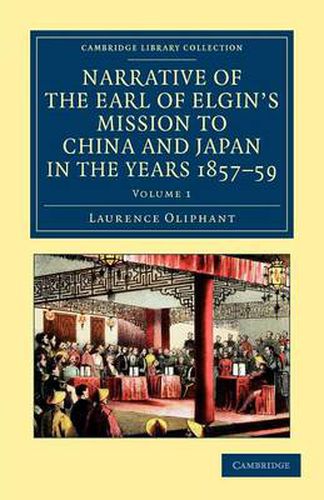Readings Newsletter
Become a Readings Member to make your shopping experience even easier.
Sign in or sign up for free!
You’re not far away from qualifying for FREE standard shipping within Australia
You’ve qualified for FREE standard shipping within Australia
The cart is loading…






In 1857 Laurence Oliphant (1829-88), lawyer, journalist, diplomat, and sometime spy, later Liberal MP, satirical novelist, and, for a time, adherent of the religious mystic Thomas Harris, became private secretary to Lord Elgin (1811-63), accompanying him to China, and thence to Japan, on a mission to protect and extend British trading interests in the region. Oliphant’s 1859 account of the trip was published in two volumes. Volume 1 deals with the events of the Second Opium War, from the ‘Arrow Incident’, discussed in retrospect, to the Treaty of Tientsin, as well as an early diversion to India to suppress the Mutiny. The work is a mixture of travel narrative - Oliphant had previously written about his travels in the Crimea (also reissued in this series) - and political analysis. It provides both an informative account of the war from a privileged vantage point and a window upon Oliphant’s colourful career.
$9.00 standard shipping within Australia
FREE standard shipping within Australia for orders over $100.00
Express & International shipping calculated at checkout
In 1857 Laurence Oliphant (1829-88), lawyer, journalist, diplomat, and sometime spy, later Liberal MP, satirical novelist, and, for a time, adherent of the religious mystic Thomas Harris, became private secretary to Lord Elgin (1811-63), accompanying him to China, and thence to Japan, on a mission to protect and extend British trading interests in the region. Oliphant’s 1859 account of the trip was published in two volumes. Volume 1 deals with the events of the Second Opium War, from the ‘Arrow Incident’, discussed in retrospect, to the Treaty of Tientsin, as well as an early diversion to India to suppress the Mutiny. The work is a mixture of travel narrative - Oliphant had previously written about his travels in the Crimea (also reissued in this series) - and political analysis. It provides both an informative account of the war from a privileged vantage point and a window upon Oliphant’s colourful career.